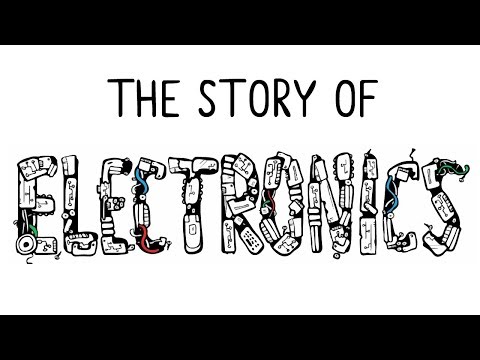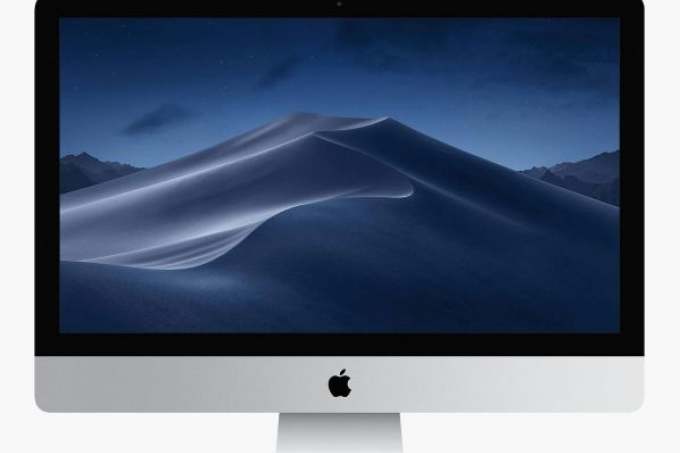Our Analysis
We seem to be obsessed with the advancement of technology, but are we working towards a sustainable relationship with it, or are we in a society of PC gone mad?
In the following guides, we rank the biggest brands in the PC industry according to their ethical policies and performance. We also look at some lesser-known companies that are offering more sustainable alternatives.
Desktop PCs and conflict minerals
| Conflict Minerals Rating Best | Middle | Worst |
| ASUS, Acer, Apple, Dell, Fujitsu, HP, Lenovo, Microsoft, Alphabet (Google) | Toshiba | Huawei, Micropro (iameco), MSI, VeryPC, Samsung |
Conflict minerals have, for a long time, been defined by policymakers under the umbrella term 3TG: tantalum, tin, tungsten and gold.
In recent years it has frequently been suggested that the trade-in cobalt, of which 75% of the world's supply is mined in DRC, is similarly linked to the conflict in the region. However, cobalt is not specified in existing conflict minerals legislation.
These five chemical elements are widely used in electronic and electrical devices including PCs and mobile phones:
tantalum is commonly used for capacitors on circuit boards, tin in solder, tungsten is used in phone vibration mechanisms and gold is in connectors - although each has multiple other uses. Cobalt is widely used in the production of batteries.
Under conflict minerals: 'Of the companies included in our PC guides, the US companies Apple, HP, Dell, Alphabet and Microsoft were obliged to report on conflict minerals under section 1502 of the Dodd-Frank Act, and all five were found to meet the criteria for our best Conflict Minerals rating.'
Find out more about conflict minerals and how we rate companies for their use.
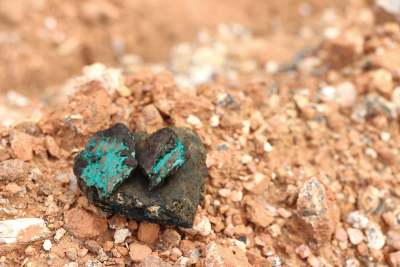
Toxic Chemicals in PCs
| Toxic chemicals rating Best | Middle | Worst |
| Micropro (iameco), Apple, Huawei | Acer, Lenovo, HP, Dell, Microsoft, Alphabet (Google), Samsung | VeryPC, ASUS, Fujitsu, MSI, Toshiba |
Among the dozens of elements and compounds used in the production of electronic devices are numerous substances known to be toxic to human health and the natural environment.
Polyvinyl chloride (PVC) and Brominated flame retardants (BFRs) are two substances often used in the plastic parts of electronic devices. Both substances are known to produce harmful by-products, such as highly toxic and carcinogenic dioxins, which can be released at various stages of a product's lifecycle.
The danger becomes acute after the disposal of a device, when plastics are often burned in incinerators or by workers in informal recycling operations, releasing dioxins directly into the air. This is one of the reasons why e-waste is such a huge problem.
Phthalates are a group of chemicals often used as a softener in PVC. Over time, they leak out of plastic materials into the surrounding environment and have been linked to a wide range of health problems affecting the liver, kidneys, lungs and reproductive systems.
In the European Union, the RoHS Directive restricts the use of toxic substances in electronics, including a number of BFRs and, as of 2019, four phthalates. However, the restrictions do not extend to all chemicals in these groups.
Ethical Consumer rates electronics companies on their level of commitment to completely phasing out PVC, BFRs and phthalates. The three PC brands that received our best rating for the use of toxic chemicals - iameco, Apple and Huawei - had committed to removing all PVC and BFRs from their entire product range. The companies that received our worst rating had either committed to reducing rather than eliminating these substances or had no public policy.
Are there any regulations on toxic chemicals?
TCO Certified is a sustainability label for IT products, which takes into account a broad range of social and environmental factors in the lifecycle of a product.
For a product to be awarded the TCO-Certified label, it must meet numerous criteria relating to both the design and manufacture including criteria on worker's rights, conflict minerals, hazardous chemicals, user health and safety, durability, and recyclability.
Of the companies featured in these guides, Lenovo, HP, Dell and Fujitsu offered TCO-Certified PC models (including laptops, hybrids and desktop PCs).
On our score table, TCO-Certified products are awarded a Product Sustainability positive mark. To find out if a specific model has the label, we recommend using the Product Finder on the TCO Certified website.
Working conditions and workers' rights
| Supply Chain Management Rating Best | Middle | Worst |
| N/A | Apple, Huawei, Lenovo & Fujitsu, Toshiba, HP, Dell, Microsoft | Google, Samsung, VeryPC, ASUS, Acer, MSI, Micropro (iameco) |
Inadequate working conditions are a persistent issue in the IT supply chain.
Conditions in Chinese electronics factories have frequently made headlines for low wages, excessive working hours, forced overtime and insufficient breaks, and the even the limited labour laws that do exist are frequently violated. Read our feature on workers rights and technology in order to see how this manifests.
Furthermore, find out why overall, none of the PC brands we rated in this guide met the criteria for our best rating for Supply Chain Management.
The carbon cost of laptops
| Carbon Emissions Reporting No emissions reporting | Scopes 1 and 2 | Scopes 1, 2 and 3 (best reporting) |
| VeryPC, Micropro (iameco) | MSI, ASUS, Huawei* | Lenovo (including Fujitsu), Dell, HP, Apple, Acer, Microsoft, Toshiba, Google (Alphabet), Samsung |
The contribution of IT and the electronics sector to climate change is a growing problem, with studies suggesting that the production and use of electronic devices will account for 14% of total greenhouse gas emissions by 2040, which equates to one half of today's global transport sector.
Like the gadgets themselves, the issue is highly complex, with emissions occurring throughout the lifecycle of a product: resource extraction, multiple stages of manufacture, transportation, use and disposal all contribute significantly to the climate impact of a device.
The production stage is often the most significant - for smartphones, this has been estimated to account for 80% of emissions. The complexity of the product means it requires large amounts of energy to manufacture, although the quantities are difficult to measure as a myriad of materials and components need to be processed and assembled by different companies along a huge supply chain
Broadening the scope of reporting
The Greenhouse Gas (GHG) Protocol defines a set of standards to assist companies with measuring and tracking their climate impact in real terms by separating emissions sources into three categories known as Scopes.
Scope 1 covers direct emissions produced by a company's own facilities, while scope 2 accounts for the emissions caused by electricity use of the company.*Reported limited data defined as Scope 3 such as employee travel but did not include supply chain or product-use emissions.
Scope 3 takes into account "all other indirect emissions", including those produced in the supply chain, product use and disposal as well as other activities such as business travel.
Although much more difficult to measure, Scope 3 emissions generally account for the largest share of a company's carbon footprint. This is particularly true for electronics manufacturers, where so much energy use occurs outside of each company's direct control.
Despite this, we found that not all companies we assessed measured and reported on scope 3 emissions. The level of reporting by each company is shown in the table above.
Short lifecycles are a driver for climate change
Perhaps the most effective way to limit the climate impact of your gadgets is by extending their life. A 2019 EU report compared the total emissions of 'use' and 'non-use' phases of their lifecycles. For notebooks, 'non-use phases' account for between 40% and 64% of the total Global Warming Potential (GWP), while the same figure for smartphones was between 51% and 92%.
As electricity supplies in some countries move gradually towards renewables, this proportion becomes even greater, particularly as the vast majority of electronics manufacturing takes place in China and other East Asian countries, where coal and other fossil fuels account for the majority of electricity supply.
This means that improvements in energy-efficient design rarely compensate for the impact of production when a device is replaced with a new one, with calculations suggesting that a smartphone may be used for between 25 and 232 years before it becomes environmentally beneficial to replace!
For consumers, this is yet another good reason to repair devices wherever possible, or else to buy second-hand or refurbished products.
Energy consumption
The power consumption is largely dependent on what type of processor (CPU) is used in the machine. Our IT team, Open Plan IT, recommend you look out for low power processors such as the Intel Atom which also requires no fan so machines are virtually silent. The 'Thermal Design Power' is what you're after. It ranges from about 4w for some of the Atoms and VIA processors to over 130w for some of the Pentium D models.
Our favourite website for checking power consumption of consumer electricals easily is Sust-it.
When choosing a lower power machine aim for the best power consumption you can.
Using less energy
The amount of energy a computer uses is dependent on what the computer is doing. If you are playing games with graphics, charging or streaming video, then your processor will be working hard and be using more electricity than if you are just running a word processing program. But even when the machine is just turned on or 'idle', it could be using up to 100KW/h. Computers apparently can use energy when connected to the power supply even when turned off, so it's worth unplugging them at the end of the day or turning them off at the wall. To minimise energy use the advice is to make full use of the computer's power management tools (found in the Control Panel in Windows operating systems) so that it powers down and 'hibernates' when not in use.
Low energy desktop computers
According to VeryPC, the current typical desktop PC on the market consumes an average of around 115 watts. VeryPC make computers that use less than 30 watts. They only make the base units so you'd need to buy a monitor, keyboard and mouse separately.
VeryPC's BroadLeaf PCs are BFR and PVC free. The basic model for home users, the Broadleaf BL43-H-i530 uses 24 watts when idling and costs about £600. It comes with a five year warranty as standard and comes with Windows operating systems.
Tax avoidance
| Tax Avoidance Rating Best | Middle | Worst |
| VeryPC, Micropro (iameco) | N/A | ASUS, MSi, Toshiba, Acer, Lenovo, HP, Dell, Microsoft, Apple, Huawei, Google, Samsung |
Ethical Consumer rated companies on the likely use of tax avoidance strategies based on whether they listed subsidiaries in countries or regions on our list of known tax havens.
Companies with two or more subsidiaries considered to be high-risk within these areas were given our worst rating, unless they published country-bycountry financial information, a policy statement or narrative explanation that could explain a different purpose for these subsidiaries.
Among the PC brands rated in this guide, all of the big multinational companies received our worst rating. Only the small alternative manufacturers VeryPC and iameco avoided losing marks.
Reuse, repair, recycle
Because of the significant carbon footprint of making a computer, ideally the life of a computer should be extended by as much as possible. Re-using a computer can save up to 20% more energy than recycling.(1)
Repairing and upgrading is much easier with a desktop rather than a portable computer (because in the latter, most components are on the motherboard rather than separate). But even a laptop can have its memory or RAM upgraded (one of the most important upgrades you can do to a computer, according to our IT team at Open Plan IT). You can even do this yourself. Find out on the website www.crucial.com/uk how much memory your computer can take.
Another option is to buy second hand. Plenty of machines are available since a lot of offices and households replace their computers every two years.(1) You might be able to find some of the models listed in this buyers' guide. Many computer retailers and manufacturers now sell second hand, reconditioned machines with warranties.
If you don't want your old computer, you could donate it to a local organisation or charity. They all have minimum specifications for the equipment they will accept so check online.
Computer Aid International is a charity which provides refurbished computers for reuse in education, health, agriculture and not-for-profit organisations in developing countries. You can donate online.
Donate a PC is a free 'matchmaking' service for individuals and organisations to donate un-needed hardware to UK charities, not-for-profit organisations and educational establishments.
There is also the option of donating it to another individual through sites such as Freecycle.
And finally, if you can't upgrade, repair or donate then you'll have to recycle. The EU Waste Electrical and Electronic Equipment (WEEE) directive places a responsibility on computer manufacturers and retailers to provide or contribute to 'takeback' facilities.
Householders can:
• Ask a retailer if they'll take products back. PC retailers must provide free takeback facilities for customers to return old equipment for recycling whenever a replacement item is purchased. Some, such as the chain PC World, will accept old electronics in-store for recycling and reuse if you're buying a similar product.
• Take old computers to their local civic amenity site (visit www.recycle-more.co.uk to find your nearest recycle bank)
• Arrange for their local authority to collect the equipment (some local authorities provide a free collection service and others charge)
• Arrange for an electrical retailer delivering new equipment to take away the old equipment
More about buying second hand tecnology.
The Story of Electronics
The Story of Electronics, released in November 2011, explores the high-tech revolution's collateral damage25 million tons of e-waste and counting, poisoned workers and a public left holding the bill. Host Annie Leonard takes viewers from the mines and factories where our gadgets begin to the horrific backyard recycling shops in China where many end up. The film concludes with a call for a green 'race to the top' where designers compete to make long-lasting, toxic-free products that are fully and easily recyclable.
Company behind the brand
iameco is a range of PCs, developed by a small Dublin-based company called Micropro, claiming to be "the world's first ecologically sustainable computers". They have been designed with unusual wooden exteriors, and include the 'D4R' (or designed for reuse) laptop, the 'V3' desktop PC, as well as wood-enclosed accessories such as a mouse and keyboard. The company states that the models are designed for minimised production waste, durability, ease of repair, disassembly and recycling. The products are also stated to be free of harmful BFRs and PVC, and to have a lower than average carbon footprint across the product life cycle.
At the time of writing, both PC models were limited editions that were no longer in stock, however, according to the company, both are expected to be back on the market with upgrades by the end of 2019.
Want to know more?
If you want to find out detailed information about a company and more about its ethical rating, then click on a brand name in the Score table.
This information is reserved for subscribers only. Don't miss out, become a subscriber today.
Become a subscriber today
Ethics made easy - comprehensive, simple to use, transparent and reliable ethical rankings. A wealth of data at your fingertips.
Only £29.95 for 12 months web access and the print magazine. Cancel via phone or email within 30 days for a full, no-questions-asked refund!
Start your subscription - find out more
Share this:
Places to buy
|
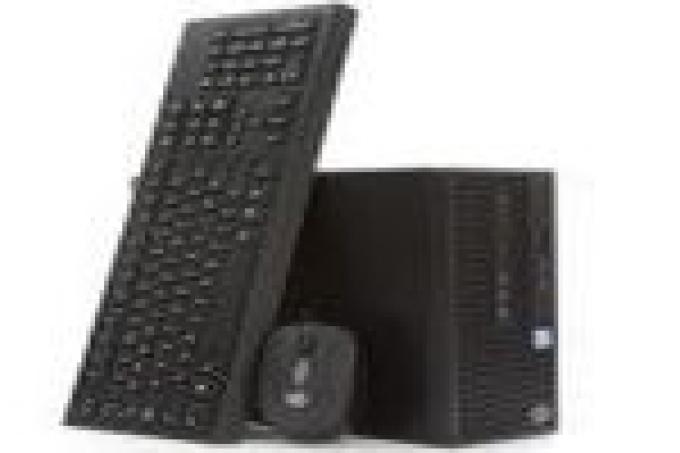
eBuyer carries a wide range of desktop computer brands.
John Lewis stocks most of our recommended buys for desktop PCs - Lenovo, Apple and Acer.
Shop now|
Ethical Consumer makes a small amount of money from your purchase. This goes to fund our research and campaigning. We ethically screen all the sites we link to.
Related links
- Ethical shopping guide to laptops|
- Conflict minerals|
- Shopping guide to Hybrid laptop-tablets|
- Shopping guide to Tablets|
servedbyadbutler.com
servedbyadbutler.com
All advertising is ethically screened - find out more →
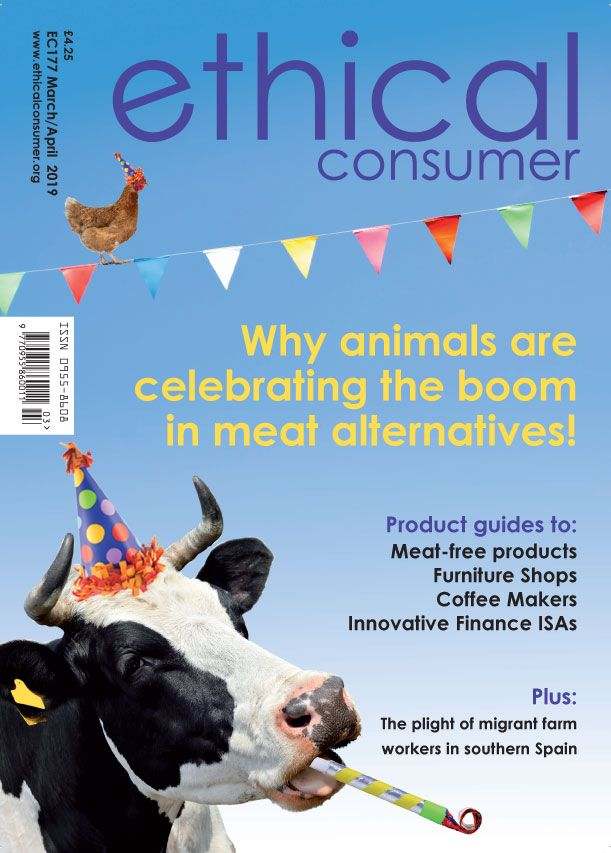
Free Issue
Sign up now to our email newsletter for a free digital copy of Ethical Consumer magazine.
